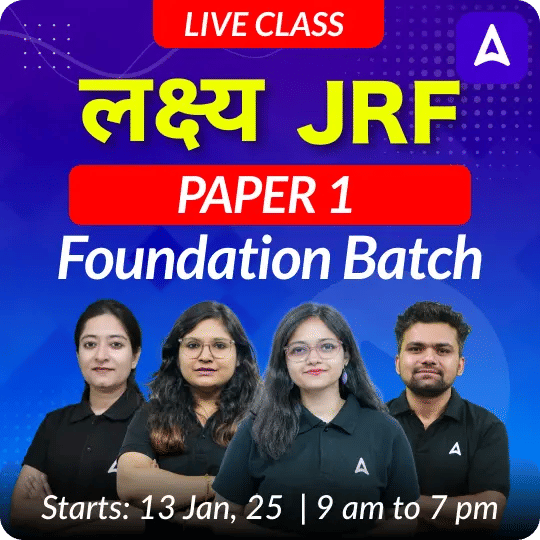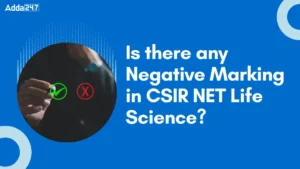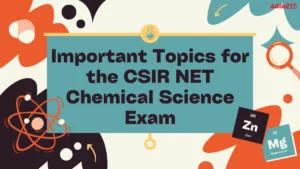Table of Contents
The UGC NET (National Eligibility Test) is a national-level examination conducted by the National Testing Agency (NTA) on behalf of the University Grants Commission (UGC) in India. Held twice a year, the UGC NET exam assesses candidates’ eligibility for Assistant Professor positions, PhD admissions, and Junior Research Fellowships (JRF) in Indian universities and colleges.
UGC NET JRF, or Junior Research Fellowship, is a fellowship program offered by UGC to support young researchers in their academic pursuits. It provides selected candidates with financial aid to conduct research and work towards a PhD. This article covers UGC NET JRF Fellowship details for 2025, including monthly stipend, age limit, and qualifications.
UGC NET JRF: Overview
The UGC NET JRF exam consists of two papers: Paper 1 is a common paper, while Paper 2 is subject-specific. Both papers are conducted in an online mode and are of objective type. The NET exam assesses the candidates’ knowledge, reasoning ability, and aptitude in their respective fields. UGC NET JRF is a fellowship offered by the UGC to those candidates who qualify in the UGC NET exam and wish to pursue research in their chosen field.
| UGC NET JRF | |
|---|---|
| Tenure of JRF | 2 years |
| Stipend | Depends on course and field |
| Application procedure | Online application through the official website of NTA (National Testing Agency) |
| JRF Full Form | Junior Research Fellowship |
| Held for College/ Institution | Indian |
| UGC NET | Qualified |
| Field | Research in concern Field |
| Check Here | UGC NET Notification |
UGC NET Junior Research Fellowship Objective
The UGC NET JRF programs provide essential support in terms of funding, professional skill-building, and networking, helping candidates advance in their research careers. For eligibility as an Assistant Professor, candidates need to secure a minimum score according to their category. To obtain the JRF, candidates must meet minimum score criteria across both exam papers and be under the age limit of 30 years.
- The objective of the UGC NET Junior Research Fellowship (JRF) program is to identify and support young talented candidates who have the potential to excel in the field of research and to provide them with financial assistance, professional development, and networking opportunities to pursue a career in research.
- UGC NET Junior Research Fellowship (JRF) program also aims to encourage interdisciplinary research and collaborations and to foster innovation and creativity in research.
- UGC NET JRF provides financial support to the candidates to undertake research in their respective fields for a period of five years or until the completion of their PhD, whichever is earlier.
- UGC NET Junior Research Fellowship (JRF) programs are highly competitive, and candidates are selected based on their performance in the qualifying exam, their academic record, research experience, and other factors.
- UGC NET Junior Research Fellowship (JRF) is open to candidates from all disciplines, including sciences, humanities, social sciences, and engineering.
UGC NET JRF Eligibility Criteria
To be eligible for the UGC NET JRF program, a candidate must meet the following eligibility criteria:
- Age Limit: The candidate must be below 30 years of age as on 1st January of the year in which the UGC NET JRF exam is conducted. A relaxation of 5 years is given to candidates belonging to the OBC-NCL, SC/ST, and PwD categories. The age limit to apply for UGC NET JRF is 30 years for general category candidates.
- Educational Qualification: The candidate must have a master’s degree or equivalent in the relevant field with at least 55% aggregate marks (50% for candidates belonging to the OBC-NCL, SC/ST, and PwD categories). Candidates who are in the final year of their master’s degree or equivalent can also apply, subject to certain conditions.
- Minimum Qualifying Marks: The candidate must score a minimum of 55% aggregate marks (50% for candidates belonging to the OBC-NCL, SC/ST, and PwD categories) in the UGC NET JRF exam to be eligible for the UGC NETJRF program.
- Eligibility for Assistant Professor: Candidates who do not qualify for the UGC NET JRF program but score minimum qualifying marks in the UGC NET JRF exam are eligible for the post of Assistant Professor in Indian universities and colleges.
UGC NET Junior Research Fellowship Stipend
The UGC NET Junior Research Fellowship (JRF) provides a monthly stipend to selected candidates to support their research work and to pursue a PhD degree. The stipend amount is revised periodically by the University Grants Commission (UGC), which is the funding agency for the JRF program.
| Designation | Duration |
Qualification | Revised Emoluments (Per month) |
| Junior Research Fellow (JRF) | 2 Years | Post Graduate Degree in Basic Science | Rs. 37,000/- |
| Graduate/ Post Graduate Degree in Professional Course selected through UGC NET Exam, GATE Exam, or other National-Level Exams Conducted by MHRD & it Agencies & Institutes Such as UGC, IIT, IISc, IISER, IIIT etc. | |||
| Senior Research Fellow (SRF) | 3 Years | Qualification prescribed for JRF along with two years of research experience. | Rs. 42,000/- |
UGC NET JRF Contingency Rate
The UGC NET Junior Research Fellowship (JRF) program provides a contingency grant to selected candidates to support their research work and to cover expenses related to research. The contingency grant is meant to cover expenses such as the cost of books, equipment, fieldwork, travel, and other expenses related to research.
| UGC NET JRF Contingency Rates | ||
| Contingency A | Rs.10,000/-p.a. for initial two years | Humanities & Social Sciences |
| Rs.20,500/-p.a. for remaining tenure | ||
| Contingency B | Rs.12,000/-p.a. for initial two years | Science |
| Rs.25,000/-p.a for remaining tenure | ||
| Escort/ Reader Assistance | Rs. 2,000/-p.m | In case of physically handicapped & blind candidates |
UGC NET JRF Financial Assistance
The UGC NET Junior Research Fellowship (JRF) program provides financial assistance to selected candidates to support their research work and to pursue a PhD degree. The financial assistance includes apart from monthly stipend, contingency grant, house rent allowance (HRA), medical benefits, and opportunities for professional development.
Dearness Allowance (DA)
DA or Dearness Allowance is a fixed percentage of salary, provided to government employees. Its objective is to keep up with the inflation for employees. JRFs, SRF, and RAs are also entitled to DA.As per Central government Revised DA rate is 50% which will be provided to UGC NET JRF Qualified candidate.
House Rent Allowance(HRA)
The research fellows are provided with hostel accommodation wherever it is available. Point to be noted, research fellows residing in the hostels are not given any HRA. In case of, no hostel accommodation available in the hostel, research fellows are entitled to the HRA as per the Central Government norms based on their location/city.
Medical Benefits
Medical Allowance is provided to the research associates and research fellows as applicable in the institute they are associated with. JRF fellows are eligible for medical benefits as per the UGC norms.
Leave and other entitlements
The JRFs and SRFs are entitled to casual leaves; however, research associate leaves are determined by the host institute. With due approval from the host institutes, the fellows are allowed to participate in scientific events/ workshops held in India and Abroad will be considered as “on duty”. Participation in aforementioned travels to scientific events/ workshops are the same as earlier in 2nd AC by Rail. As per the government guidelines, maternity leaves will be issued to female candidates in all categories.
Retirement Benefits
The UGC NET Junior Research Fellowship (JRF) program is a research-oriented program that does not provide retirement benefits to its fellows as it is not a regular employment program. JRF fellows are provided with financial assistance in the form of a stipend, contingency grant, and other benefits to support their research work and to pursue a PhD degree.
However, JRF fellows can become eligible for retirement benefits if they secure a regular employment position after completing their PhD degree. In such cases, the retirement benefits would be provided by the organization where they are employed and would be as per the norms of that organization.
UGC NET Junior Research Fellowship (JRF) Application Procedure
The application procedure for the UGC NET Junior Research Fellowship (JRF) program involves the following steps:
- Candidates need to register themselves on the official website of the National Testing Agency (NTA) by providing their basic details such as name, date of birth, email ID, and mobile number.
- After registration, candidates need to fill the online application form by providing their personal details, educational qualifications, and other relevant information. They also need to upload scanned copies of their photograph and signature in the prescribed format.
- Candidates need to pay the application fee through online mode using a credit card, debit card, or net banking. The application fee varies depending on the category of the candidate and the number of papers they are appearing for.
- After filling the application form and paying the fee, candidates need to submit the application form online.
- Candidates should take a printout of the confirmation page generated after the successful submission of the application form. They should keep the confirmation page safely for future reference.
UGC NET JRF Selection Process
The UGC NET exam is an important qualification test that determines the eligibility of candidates for the posts of Junior Research Fellowship (JRF) and Assistant Professor at different universities and colleges across India. Candidates who qualify the NET exam in the relevant discipline of their post-graduation become eligible to apply for JRF in concerned discipline at various institutions of their preference. However, it is essential to note that the final selection of candidates is based on the fulfillment of eligibility criteria and other specific requirements that are decided by the institution where they are applying.
UGC NET Junior Research Fellowship (JRF) Preparation Tips
Preparing for the UGC NET Junior Research Fellowship (JRF) exam requires hard work and dedication. Here are some tips that can help candidates in their preparation:
- Know the Syllabus: Candidates should have a clear understanding of the UGC NET JRF syllabus and exam pattern. They should refer to the official notification and study materials to get a comprehensive idea about the topics that are covered in the exam.
- Make a Study Plan: Candidates should create a study plan that allows them to cover the entire syllabus within the given timeframe. They should set realistic goals and allocate time for revision and practice tests.
- Refer to Recommended Books: Candidates should refer to the recommended books and study materials for their subject to ensure that they are covering all the topics in the syllabus.
- Practice Previous Year Papers: Practicing previous year question papers and mock tests is an essential part of exam preparation. It helps candidates to understand the exam pattern, identify their strengths and weaknesses, and improve their time management skills.
- Stay Updated with Current Affairs: Candidates should stay updated with the latest developments and current affairs related to their subject. They should read newspapers, magazines, and other relevant publications to stay informed.
- Take Breaks: Taking breaks and maintaining a healthy routine is crucial for effective exam preparation. Candidates should ensure that they get adequate rest and sleep, exercise regularly, and eat a balanced diet.
| UGC NET Exam Related Links | |
| UGC NET | UGC NET Syllabus |
| UGC NET Exam Pattern | UGC NET Previous Year Papers |
| UGC NET Preparation Tips | UGC NET Eligibility |
| UGC NET Cut Off | UGC NET Mock Test |




 Is There Any Negative Marking In CSIR NE...
Is There Any Negative Marking In CSIR NE...
 Important Topics for CSIR NET Chemical S...
Important Topics for CSIR NET Chemical S...
 How to Prepare PTET Exam Online at Home?
How to Prepare PTET Exam Online at Home?














